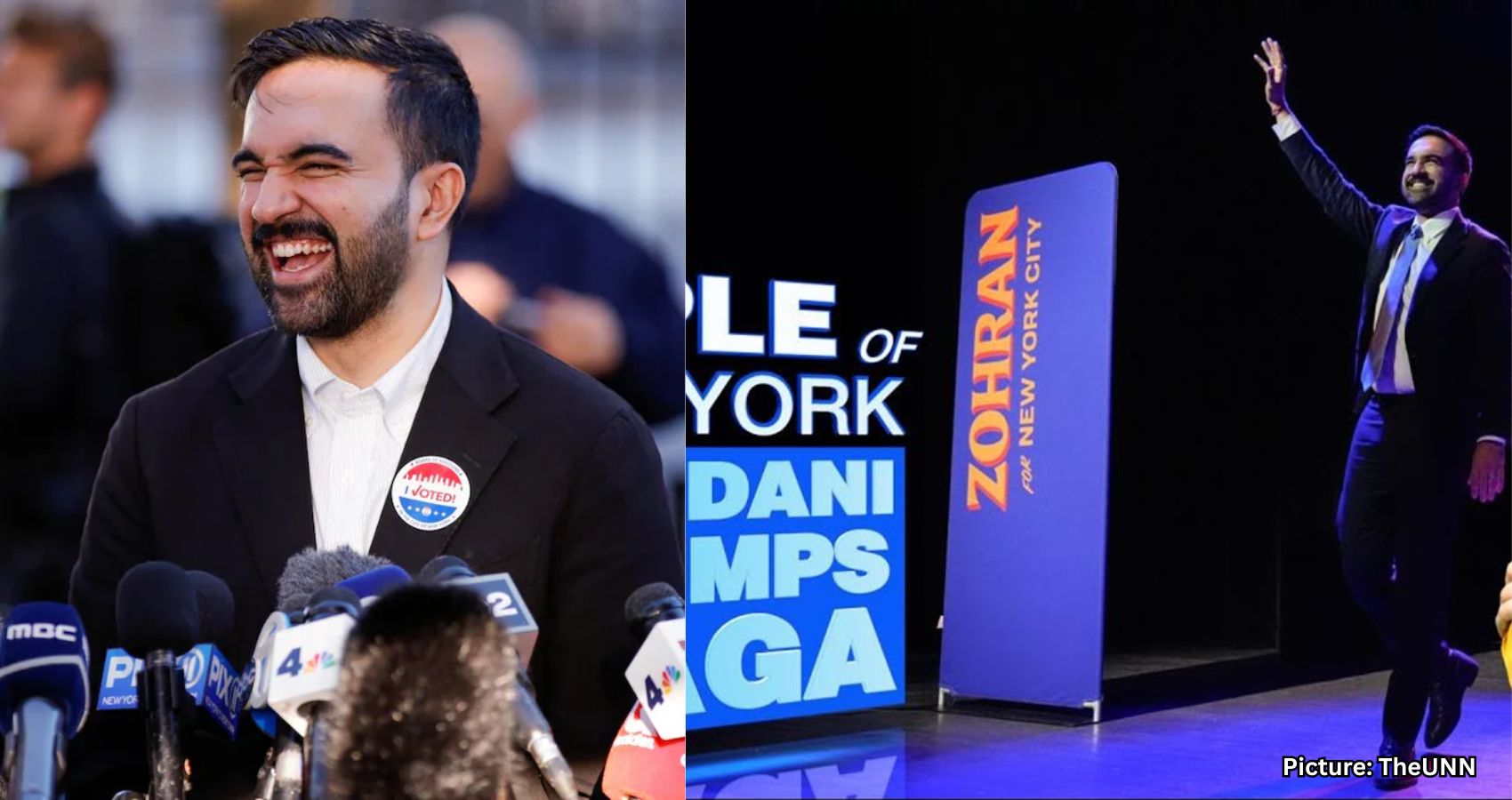Zohran Kwame Mamdani has made history as New York City’s first South Asian and Muslim mayor, emphasizing the importance of immigrant contributions to the city.
In a historic victory, Zohran Kwame Mamdani, 34, has been elected as New York City’s first mayor of South Asian descent and the first Muslim to hold the office. His election marks a significant milestone in the city’s diverse political landscape.
During his victory speech, Mamdani highlighted the foundational role of immigrants in shaping New York City, stating, “New York City was built by immigrants — and is now going to be led by one.” His remarks resonated with a city that prides itself on its multicultural heritage.
Mamdani’s campaign was characterized by a unique coalition that included a diverse array of supporters. He expressed gratitude to the “aunties” who played a crucial role in his election, as well as to his wife, Rama, and others who contributed to his success. In a heartfelt moment, he acknowledged his parents, saying, “You have made me into the man I am today. I am so proud to be your son.” His mother, acclaimed Indian American director Mira Nair, is known for her influential films such as “Monsoon Wedding” and “The Namesake.”
As a Democratic Socialist, Mamdani’s platform focused on issues that resonate with many New Yorkers, including affordable housing and social justice. His victory is seen as a reflection of the growing political power of South Asians in the city. With approximately 450,000 South Asians residing in New York City, they represent about 5% of the population, a community that has been rapidly expanding in recent years.
Several media outlets have covered Mamdani’s rise to prominence, emphasizing the grassroots nature of his campaign. Jennifer Chowdhury from Harper’s Bazaar noted that first-generation immigrant women of color, including mothers and grandmothers, were instrumental in powering Mamdani’s campaign from community spaces to local businesses.
Astead W. Herndon from The New York Times Magazine described Mamdani’s coalition-building efforts, which brought together Muslims, South Asians, renters, young people, and progressives. This diverse support base was crucial in mobilizing voters who have often felt overlooked by traditional political candidates.
In an era marked by rising nativism and political cynicism, Mamdani’s campaign has embraced New York City as a beacon for immigrants. Eric Lach from The New Yorker highlighted how Mamdani’s approach stands in stark contrast to the prevailing sentiments in some parts of the country, showcasing a vision of inclusivity and hope.
Mamdani’s election also brings attention to the ongoing challenges faced by Muslim communities in the United States. He has spoken candidly about the impact of Islamophobia, particularly in the wake of events like 9/11, and how these experiences have shaped his perspective and commitment to public service.
As Mamdani prepares to take office, his victory is not just a personal achievement but a symbol of the changing dynamics in American politics. His ascent reflects a broader trend of increasing representation for marginalized communities, particularly in urban centers like New York City.
With his election, many are hopeful that Mamdani will continue to advocate for the needs of diverse communities and work towards a more equitable city. As he steps into this historic role, the pronunciation of his name—MUM-DHA-NEE—may become a common refrain, symbolizing a new chapter in New York City’s political narrative.
Source: Original article

